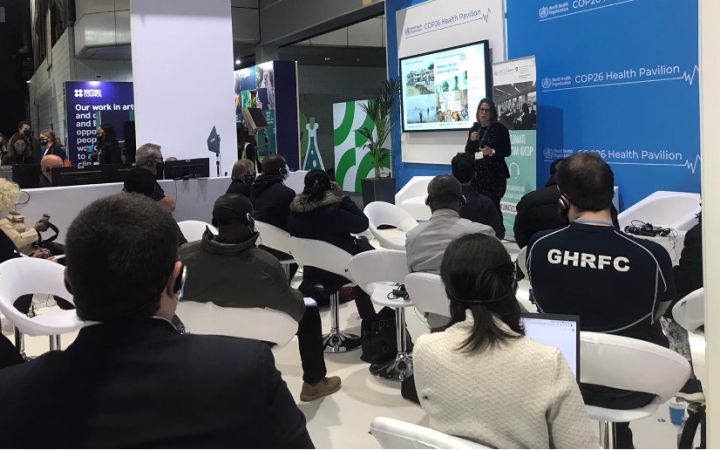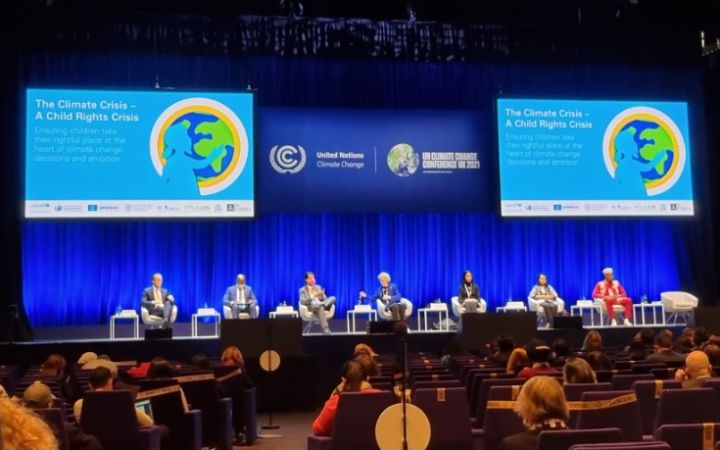16 December 2021, Geneva, Switzerland - During the 26th Conferences of the Parties (COP26) to the United Nations Framework Convention on Climate Change (UNFCCC), held in Glasgow, Scotland from 31 October to 12 November 2021, UN CC:Learn supported two One UN side events and held the eighth edition of its Climate Classroom, the series of 45-minute lessons which have become the programme’s flagship initiative at COP.
UN CC:Learn’s participation at COP26 started out with a class on “Enhancing and Tracking the Arc of Ambition”, delivered in collaboration with the World Resources Institute (WRI), that aimed to enlighten participants on the importance of improving countries’ Nationally Determined Contributions (NDCs). This class – and several others this year – were delivered through a new format created to adapt the Climate Classroom to the new constraints brought about by the COVID-19 pandemic and allowing participants to connect virtually while keeping the cozy and distinctive ambiance of a regular classroom.
Over the two weeks of COP, 16 classes were held, four of which in-person for delegates attending the conference in Glasgow. They covered a broad range of topics, spanning from climate change communications, climate change education, and climate finance to the gender and climate change, carbon markets and the role of the private sector in addressing the climate crisis. The classes were organized in partnership with UN partners, such as WHO, UN Women, UN Environment, UN Climate Change and UN Human Rights, not-for-profit organizations, like MIET Africa, and WRI, and private companies, Danone and GEMS Education. With content carefully developed by experts, this year’s classes kept over 600 people, among delegates and general public, up-to-speed on climate change issues.
In addition to the Climate Classroom, UN CC:Learn supported two side events with experts and high-level speakers that took place on 11 November 2021: “The Climate Crisis: A Child Rights Crisis”, led by UNICEF, and “Enhancing climate resilience for LDCs and SIDS through space data, finance mechanisms and partnerships”, organized by UNCDF and UNOSAT.
The former aimed to provide a platform for youth to express their views and demands at COP26 while encouraging countries to formally acknowledge the key role of children in addressing the climate crisis through their alignment to the Declaration on Children, Youth and Climate Action. The latter explored how science, innovative finance and solutions, and enhanced global partnerships can help raise ambitions in NDCs and National Adaptation Plans (NAPs) and deliver climate adaptation that meets the needs of vulnerable communities in Least Developed Countries (LDCs), Small Island Developing States (SIDS) and African nations.
As in previous years, UN CC:Learn made all the information on its activities at COP available on a dedicated page, which also included a link to the program’s library full of UN resources.



